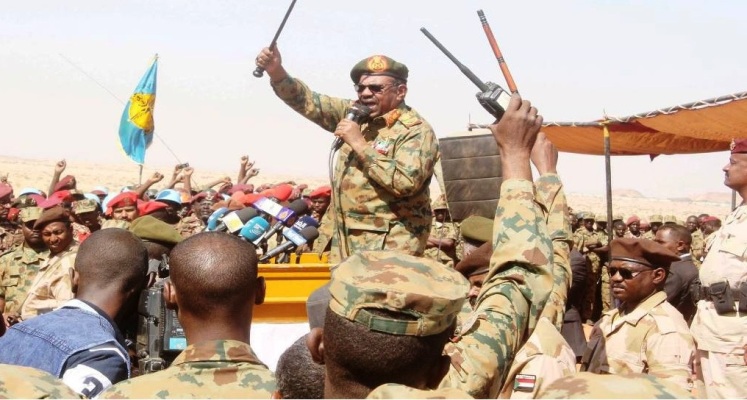Sudan’s president extends ceasefire for one month

December 31, 2016 (KHARTOUM) – Sudanese President Omer al-Bashir on Saturday has declared extension of the unilateral cessation of hostilities in war zones for one month, disclosing that a higher committee would be established to draft a permanent constitution for the country.
The Sudanese army has been fighting the Sudan People’s Liberation Movement/North (SPLM-N) rebels in Blue Nile and South Kordofan, also known as “Two Areas” since 2011 and a group of armed movements in Darfur since 2003.
Last June, al-Bashir declared a unilateral four-month cessation of hostilities in the Two Areas. In October, he extended the ceasefire for a two-month period, and renewed call to the armed and political opposition groups to join the internal national dialogue process.
In his address on the occasion of Sudan’s 61st Independence Day, al-Bashir declared “the extension of ceasefire, except in the case of self-defence, for one month in order to make the holdout opposition think positively to join the dialogue”.
It is noteworthy that the SPLM-N, the Sudan Liberation Movement-Minni Minnawi (SLM-MM), and the Justice and Equality Movement (JEM) in October extended for six months the unilateral cessation of hostilities in Darfur, Blue Nile and south Kordofan they declared in October 2015 and April of this year.
Following six days of talks in Addis Ababa last August, the armed movements and the government failed to conclude a deal on the security arrangements and humanitarian access in Darfur and the Two Areas prompting the African Union mediation to suspend the talks indefinitely.
Al-Bashir further underscored his government commitment to implement the outcome of the national dialogue, saying the dialogue’s doors are still open for the opposition to sign the National Document.
He disclosed that a higher committee to draft the permanent constitution would be formed during the coming few days, saying the constitution will be approved by an elected parliament.
The Sudanese President denied that the dialogue coordination body known as 7+7 was dissolved; saying new members have been added to it in order to follow up on the implementation of the dialogue recommendations.
Since January 2014, al-Bashir has been leading a national dialogue process whose stated aims are to resolve the armed conflicts, achieve political freedoms, alleviate poverty and the economic crisis, and address the national identity crisis.
Last October, the political forces participating at the national dialogue concluded the process by signing the National Document which includes the general features of a future constitution to be finalized by transitional institutions.
The opposition groups boycotted the process because the government didn’t agree on humanitarian truce with the armed groups and due to its refusal to implement a number of confidence building measures.
(ST)
